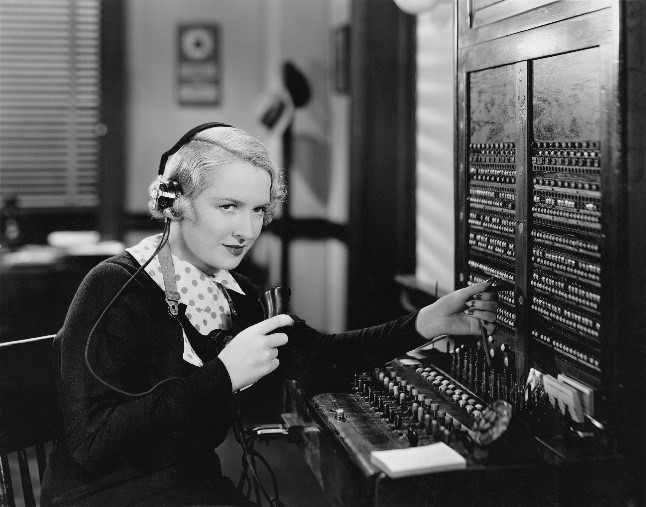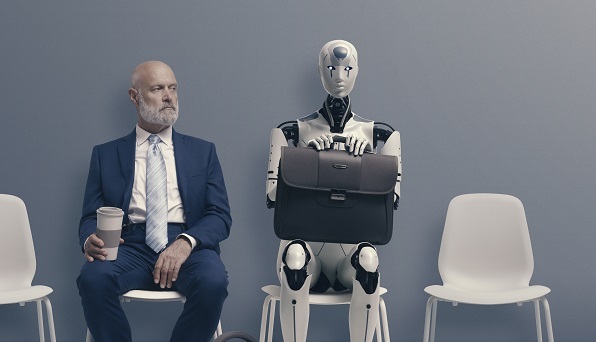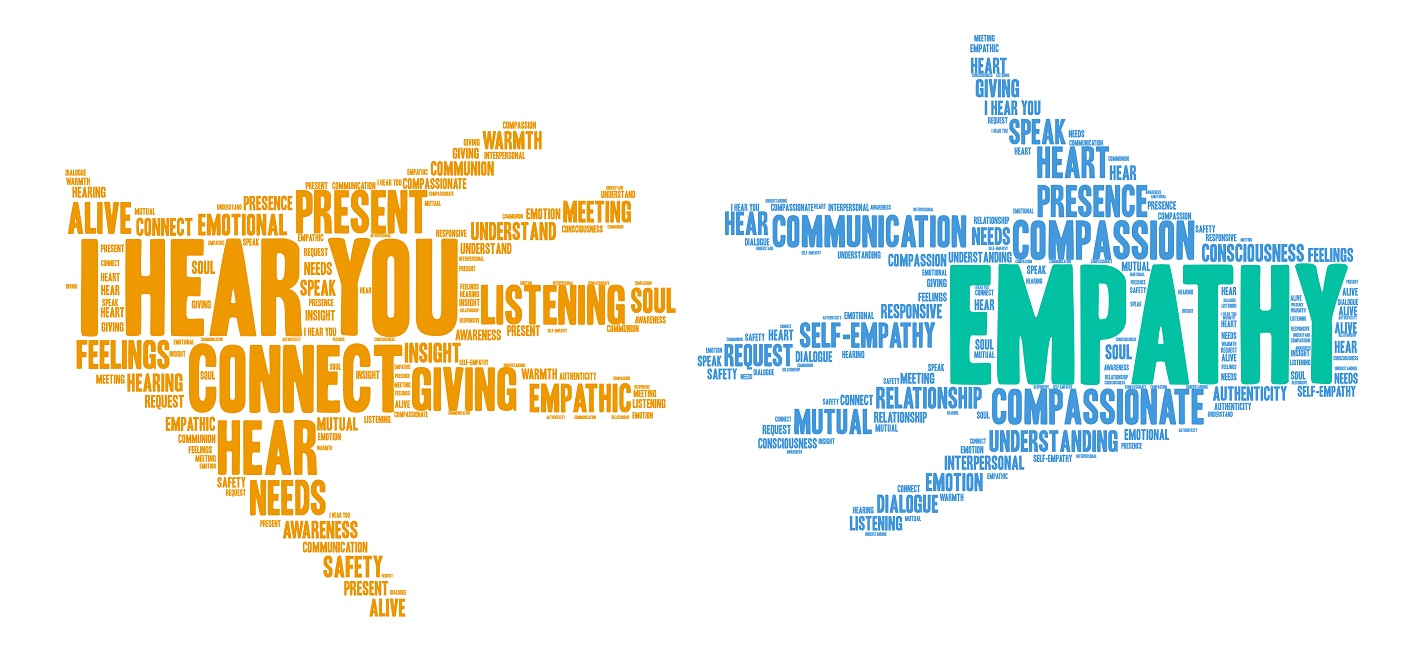An Article written by Sarah Tracy, PE

When you hear the words, “artificial intelligence,” or the initials, “AI,” do you first think of science fiction? R2D2 and C3PO in Star Wars, HAL in 2001: A Space Odyssey, Data in Star Trek: The Next Generation, The Terminator, the computer in War Games. . .pop culture is full of machines that are sentient or become that way as a plot device.
Those movies and TV shows and the sentient characters they introduced debuted decades ago. In some cases, they became treasured memories of our childhood or early imagination of what a robot could bring to our lives.  They looked either friendly or menacing and oft times intrigued us because of their human qualities such as sense of humor or quick wit. Fast forward to 2023, and we are now much more science than fiction, especially since AI is now broader than just self-aware machines. Now we are reminded daily due to current news headlines or events that AI could replace us and the jobs that many depend on.
They looked either friendly or menacing and oft times intrigued us because of their human qualities such as sense of humor or quick wit. Fast forward to 2023, and we are now much more science than fiction, especially since AI is now broader than just self-aware machines. Now we are reminded daily due to current news headlines or events that AI could replace us and the jobs that many depend on.
AI was first proposed in the 1950s, when computing machinery became more prevalent. In simple terms, AI refers to machines that can “think” or make decisions based on inputs and parameters. Since the early days of automation, society has seen the use of AI expand further and further into our everyday lives. When telephones first showed up in our homes, we had to talk to an actual human operator to make a call.
 Later, you dialed a number, but there was still a person at a switchboard who connected the lines to allow that call to go through. Now, not only does a machine connect your call, but you most likely have to talk to another one on the other end of the line.
Later, you dialed a number, but there was still a person at a switchboard who connected the lines to allow that call to go through. Now, not only does a machine connect your call, but you most likely have to talk to another one on the other end of the line.
Phone calls are just one example. AI seems to be everywhere. We “chat” with virtual assistants on websites and within computer software packages. Many of us have our own personal virtual assistants on our phones and in our homes that do everything from searching the internet for us to adjusting our thermostats and telling us jokes. We even get trolled by bots on social media.
Suddenly, the sky was falling. “Everyone is going to cheat.” or “I’ll never have to write an essay, again!” As of this writing (and yes, this piece was written using SI – Sarah Intelligence), screenwriters and others are on strike, with one of their demands being that producers and studios must agree not to use AI for scripts or to apply their names and likenesses to AI generated characters.
So, what is generative AI? I asked Siri and here’s where she sent me:
In a nutshell, generative AI is a type of artificial intelligence technology than can produce various types of content, including text, imagery, audio and synthetic data. Hmmmmmm……..
All ages seem to be aware of generative AI. At a recent elementary school STEM fair in Jackson, a third grader’s project was to write a paragraph on a particular topic, ask ChatGPT to write a paragraph on the same topic at a third-grade level, and then have test subjects (both students and teachers) read each paragraph and decide which one was his. For the record, most folks thought the AI paragraph had been written by the student, but in general, students chose correctly more often than the teachers did. (Personally, I just hope this kid becomes an engineer one day!)
What do all these advancements mean for engineers? Will we one day go the way of the telephone operator?
I do not think so. I believe the opposite is true.

Society is going to need more engineers, specifically more professional engineers. AI will continue to progress and improve, but that progress and improvement must be thoughtful, intentional, and ethical. Likewise, the application of AI should meet those same criteria. Who better to develop and apply AI than professionals who dedicate their practice to protecting the health, safety, and welfare of the public?
Further, machines lack a fundamental aspect that we humans have: emotion, particularly empathy.
 Someone once told me that she could never be an engineer because she liked being around people too much. I tried to use that as an educational moment since we engineers are all about people.
Someone once told me that she could never be an engineer because she liked being around people too much. I tried to use that as an educational moment since we engineers are all about people.
You may scoff at that sentiment but think about it this way: our very nature is problem-solving.
Yes, we like to use math and science to solve those problems and many of our solutions are focused on the physical world. However, the primary purpose of our work is improving the human condition, making the world a better place, and that involves interacting with people to determine their needs and desires.
So, just as GPS has assisted surveyors in their work but does not replace them (see Blake Collins’ article “Has technology made the surveyor obsolete?”), AI can be another tool for engineers. The important thing to remember is, no matter how advanced it may be, we should not rely solely on AI for our decision making or for the care of our clients. We should continue to use our education, to lean on our experiences, and to seek input from trusted advisors. While computers can perform all the needed calculations, engineering is about more than numbers.
AI may give us a helping hand, but it’s no substitute for a diligent and conscientious PE.
Articles by contributors are not necessarily the viewpoint or opinion of the Mississippi Board of Licensure for Professional Engineers & Surveyors.
